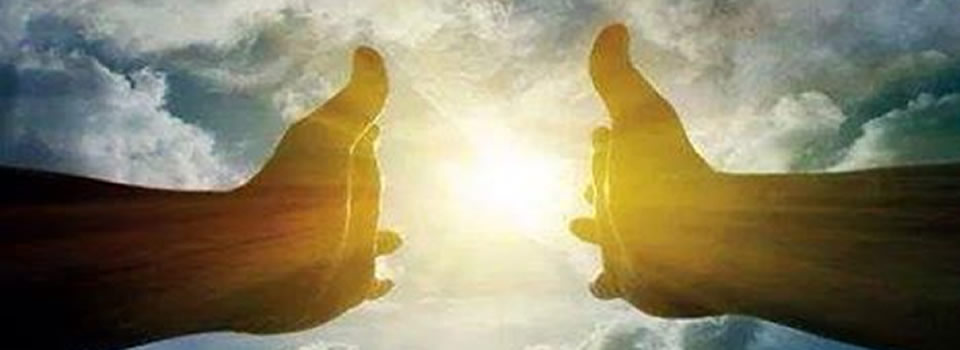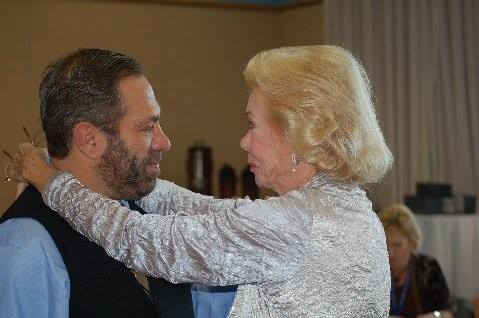Louise Hay Dies at 90
 Louise Hay, an advocate for unconditional love and forgiveness during the height of the AIDS crisis, died peacefully Wednesday morning of natural causes. She was 90.
Louise Hay, an advocate for unconditional love and forgiveness during the height of the AIDS crisis, died peacefully Wednesday morning of natural causes. She was 90.
“Meeting Louise changed the direction of my life,” Reid Tracy, President and CEO of Hay House, Inc., said in a statement posted on her website. “Her passion for serving others translated into everything she did. Simply by working alongside her, an analytical accountant like me transformed into someone who became aware of the power of affirmations and self-love. Being able to learn from her has been one of my life’s greatest blessings.”
Hay was one of several women who emerged as spiritual gurus alongside Marianne Williamson, Rev. Sandy Scott, and Ma Jaya, to name the most prominent.
“Louise Hay and her Hay Ride gave spiritual support and acceptance to so many in the early days of the AIDS epidemic,” says gay former Entertainment Tonight executive producer Brad Bessey. “She was so important to our movement—preaching love over fear and healing, hope and heart over hopelessness.”
Fiesta Hall in West Hollywood’s Plummer Park would fill up on Wednesday night in the late 1980s with up to 700 people seeking hope, comfort, friendship, forgiveness, love and often a cure for the incurable AIDS from the metaphysical counselor who said she had cured herself of cancer. The celebration of life known as the Hay Ride, was often the only time a person with AIDS might be touched, hugged or massaged with care, not rough disdain.
People with AIDS came to the gathering in all conditions—hobbling on canes with one leg stiffened by hard purple KS lesions or somehow walking with portable IV drips, or barely ambulatory with arms wrapped around the shoulders of friends who served as human crutches to allow the weakened one some sense of dignity and self-propulsion. Friends, healthcare workers, family, activists, volunteers—anyone with a heart desperate to do something, if only give love—would park their outrage at the door and pack the auditorium to listen to each other, whether pleas for roommates, money for rent, announcements about memorials, personal AIDS updates, hopes, fears and gratitude for finding a place to really be themselves. Many were still in the closet or AIDS had outted them, accompanied by family rejection. It was in arenas like this, as well as at the bedsides of the dying or on the streets protesting government inaction that the concept of “family of choice” took hold.
Hay would offer spiritual guidance, affirmations and unconditional love. She also lead visualizations with hundreds of mostly strangers making room to lying next to a sick, healthy or healing body to do intimate private internal work. By the end, whether full forgiveness had been achieved or not, there were no strangers, only friends with no known name yet. The atmosphere in the auditorium was infused with honest emotion—sadness at the loss of loved ones, grief at one’s own imminent passing, and love and joy enough to move mountains.
“Love is the most powerful stimulant to the immune system. What we’re doing here is practicing love, unconditional love,” Hay would say.
But Hay’s message of self-healing—love, self-love, laughter healing the immune system—had a dark side, too. Doing the inner work was a prerequisite to healing, and thus a personal responsibility. Hay sometimes told a person with AIDS they were responsible for their own illness, leading some to contemplate suicide because they weren’t healing fast enough or at all, with the ravages of AIDS.
“As a physician, I think that love and acceptance and forgiveness may well be an important component of healing, but AIDS is a viral disease caused by a virus and not by a lack of love,” Dr. Michael Gottlieb, co-author with Dr. Joel Weisman of the first CDC article on what would become known as HIV/AIDS, told the Los Angeles Times in 1988.

(Photo of David Kessler with Louise Hay. Photo from Kessler’s Facebook page)
But for many, including grief expert David Kessler, who co-founded Project Angel Food with Marianne Williamson, Hay was a co-author and friend.
“I first met Louise in the early 80’s during the AIDS crisis. In those fearful days when so many were taking a step back, she took a step forward,” Kessler said on his Facebook page. “I had the privilege of co-authoring You Can Heal Your Heart with Louise. Many thought the woman who wrote so much of healing would be afraid to look at death and grief. But that was not Louise. Years ago, when we first talked about my work on grief, I asked her about her own death. She replied, ‘I’ve lived my life fully. I just want to make sure that when the time comes, I live my dying fully.’”
“Beyond being courageous, extraordinary and talented, Louise Hay was unwavering in her commitment in loving people and them knowing their own values,” says Rodney Scott, who now works with TV counselor Iyanla Vanzant. “Louise was brilliant in creating a safe, nonjudgmental space for people to live extraordinary lives. Today I hold Louise and her family and friends all around the world in my thoughts and prayers.”
